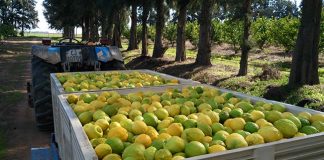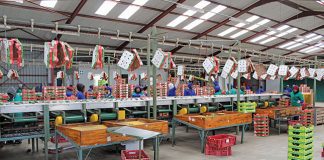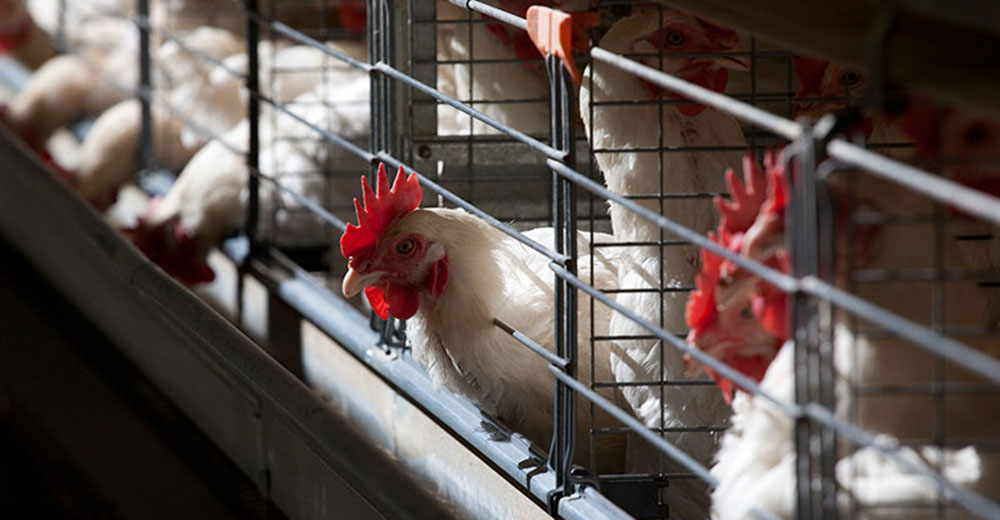The R20 million paid for Tanzania, an African buffalo cow, at a game auction in April has sparked fierce debate in South Africa’s game farming fraternity about the sustainability of prices currently being fetched by rare game. The auction was held by Vleissentraal Bosveld on behalf of Pieter du Toit, one of the country’s top breeders of buffalo and exotic colour-variant game species such as black impala and golden wildebeest.
Included in Du Toit’s record R146 million auction turnover was the sale of a R7,25 million young buffalo bull, and the R5,1 million sale of a king wildebeest with females. A little-known fact about Tanzania is that Du Toit bought the animal on auction in 2011 from insurance magnate Douw Steyn for R2,6 million. Accounting for the R17,4 million profit, Du Toit said Tanzania has the largest horn spread, at 109cm, of any contained disease-free buffalo cow and that it isn’t likely an animal of her stature will be sold at an auction again.
However, Louis Prigge, Steyn’s wildlife manager, said Shamballa Private Game Reserve still has “several outstanding cows” from Tanzania’s bloodline, some of which will be sold on auction and others perhaps privately. “If you’re asking if Tanzania is worth R20 million, all I can say is that the price has started a debate that’s going to go on for a long time,” said Prigge.
The norm
Astounding sales figures have become the norm in an industry which is expected to make R10 billion in 2012, up from R6 billion in 2011. But not everyone is convinced the prices currently being paid are a true reflection of the market. “These high prices are wonderful advertisements for the industry and its growth, but I don’t think they’ll keep,” said Ernest Janovsky, head of Absa agribusiness.
He believes the volumes of sales will continue to pick up, but the high prices will fall back, though it’s unlikely they’ll slump.
Gustav Collins of Wildvest, SA’s first wildlife investment company, said no investment company can gauge prospective returns on investment based on current prices.
Noting that average prices for rare game have been growing steadily for 15 years, he claimed that wildlife association members often “buy among each other at auctions”, partly to stimulate the market and partly to create a market for the offspring of their animals.
The bulk of colour-variant species at Du Toit’s auction were bought by ranchers who belong to the Pilanesberg Study Group. Du Toit belongs to this study group but denies anything untoward. “The game industry is an intimate one, and only two ranches in addition to mine are big enough to have their own auctions,” he explained. Other breeders belong to associations and have combined auctions.
“Top genetics are scarce, so it’s inevitable that we buy and sell where there are existing relations,” Du Toit said. Gert Dry, president of Wildlife Ranching South Africa (WRSA), explained that buffalo breeding is driven mainly by trophy hunting. Recent Safari Club International surveys have shown that the Cape buffalo is one of three game species international hunters like to shoot if they can afford to. There are about 22 000 disease-free buffalo in SA, said Dry.
Colouration
At the same time, a great deal of energy is going into the breeding of game merely for recessive gene colouration – and this also has industry observers concerned. Speaking on condition of anonymity, a top insurance broker said colour-variant species “tend to fall over, not only in transit but from stress up to 10 days later.”
Janovsky said it’s scary how many farmers are breeding “the outliers and freaks of the animal kingdom, like the golden gnus, and black-nosed whatevers. It’s not well understood from a genetic point of view and it’s not well controlled.” Dr Desiré Dalton of the National Zoological Gardens warned that breeders were not drawing on recessive genetic colouration research.
Dry said WRSA would shortly be running a workshop on the matter.











